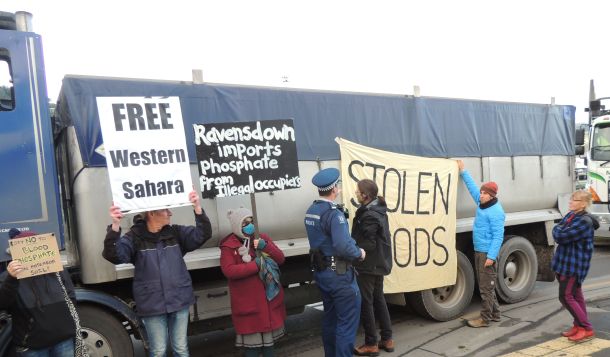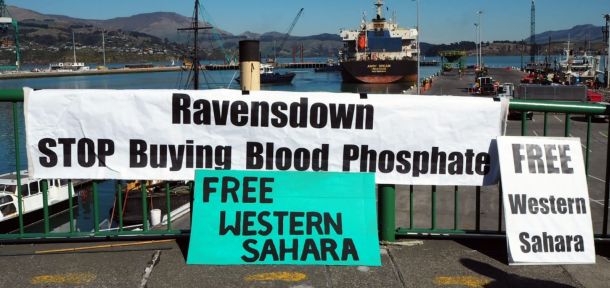A Japanese-Canadian vessel that transported conflict phosphate from occupied Western Sahara was yesterday received by a floating protest in New Zealand.
In the morning of 9 December 2019, the bulk carrier Federal Crimson- carrying 50,000 tonnes of phosphate from occupied Western Sahara - was met by a peace flotilla of 15 kayaks and a ferry with more than 100 school children. Another 80 activists were singing protest songs from land.
Protesters called on importing company Ravensdown to stop buying Saharawi phosphate immediately.
The evening before, as the vessel arrived at the port, a protest letter was handed over by the Rail and Maritime Transport Union (RMTU) Lyttelton Port Branch to the captain of the vessel. About a month ago, the Council of Trade Unions (CTU) of New Zealand had passed a resolution condemning Morocco's illegal occupation of Western Sahara and calling upon the New Zealand government to halt the imports of phosphate from the territory. RMTU is an affiliate of the Council.
Since arriving in New Zealand, the Federal Crimson has had nothing but an unwelcome experience. A week ago, as protesters demonstrated at the port of Napier, where the vessel discharged part of its cargo for the Ravensdown's facilities in the area, Like in Lyttelton, RMTU's Napier Branch handed over a protest letter to the vessel's captain, after having threatened not to unload the cargo if they were barred from this form of peaceful protest.
Ravensdown on 2 December commented on the imports through a statement on its its Facebook account.
Civil society protests have been going in different ports of New Zealand for weeks now, calling on both Ravensdown and Ballance Agri-Nutrients to end the import of "blood phosphate". The two companies, which are farmers' cooperatives, import phosphate rock from occupied Western Sahara - a Non-Self-Governing Territory in Northwest Africa that was brutally invaded and annexed by Morocco in 1975. To date, Morocco continues to militarily occupy three-quarters of the territory, including its phosphate reserves which are exploited to the benefit of Morocco's national treasury. The Saharawi people - living in refugee camps in Algeria or under the yoke of a brutal oppression - have not consented to the phosphate trade, as would be in line with their internationally recognised right to self-determination.
The controversial trade is documented in the annual Western Sahara Resource Watch report P for Plunder. New Zealand is one of the very few countries that are still importing the conflict mineral, after Spain, Lithuania, Australia, Colombia, Venezuela, Mexico, Canada, USA and Norway have halted the trade in recent years.
The vessel Federal Crimson is operated by Fednav Ltd, Canada, (president LG Pathy lgpathy@fednav.com, Vice-president operations, Mr. Paul A Gourdeau, pgourdeau@fednav.com, Vice-president chartering, Mr. James W Easey, jeasey@fednav.com). Group owner is Marubeni Corp, Japan, while registered owner is MMSL Pte Ltd, Singapore. P&I by UK P&I Club.
High resolution film clips will be posted in this article on 11 Dec.
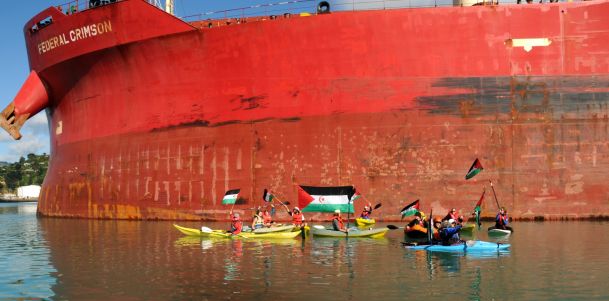
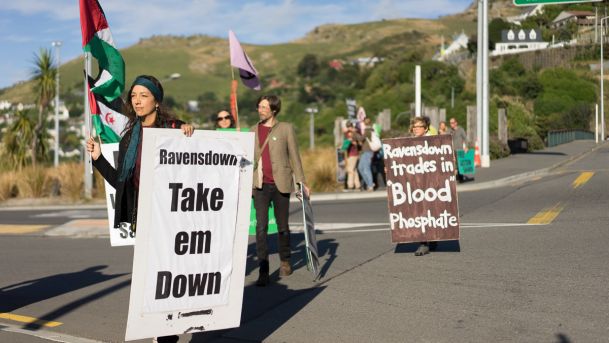
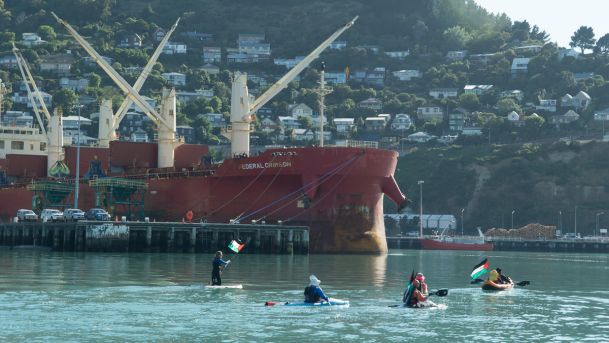
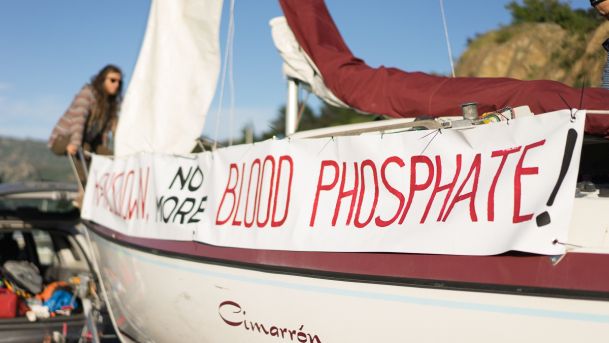
Christchurch resident Jacob Rados sits patiently on the yacht Cimarrón, getting ready for departure (Photo credit: Josie Blossfield)
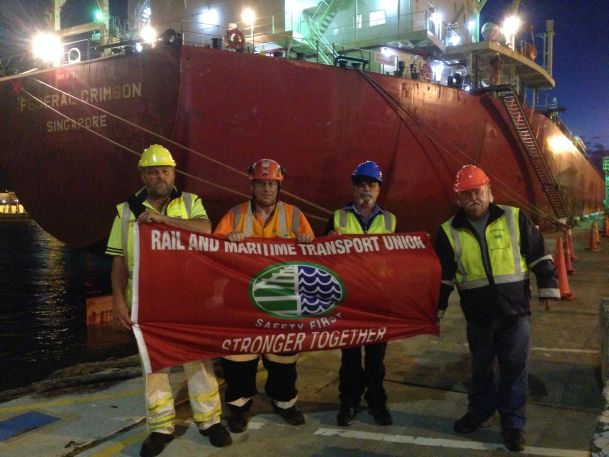
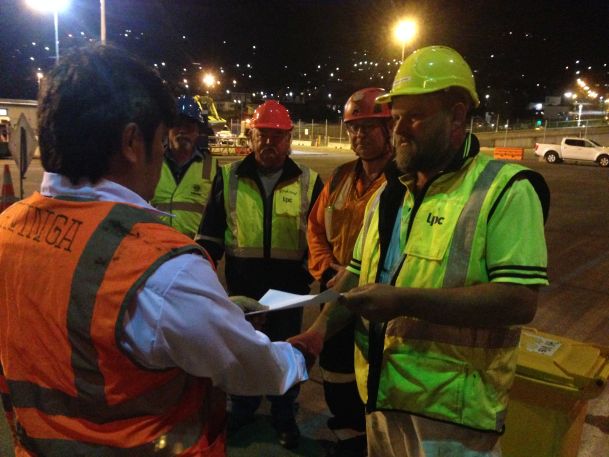
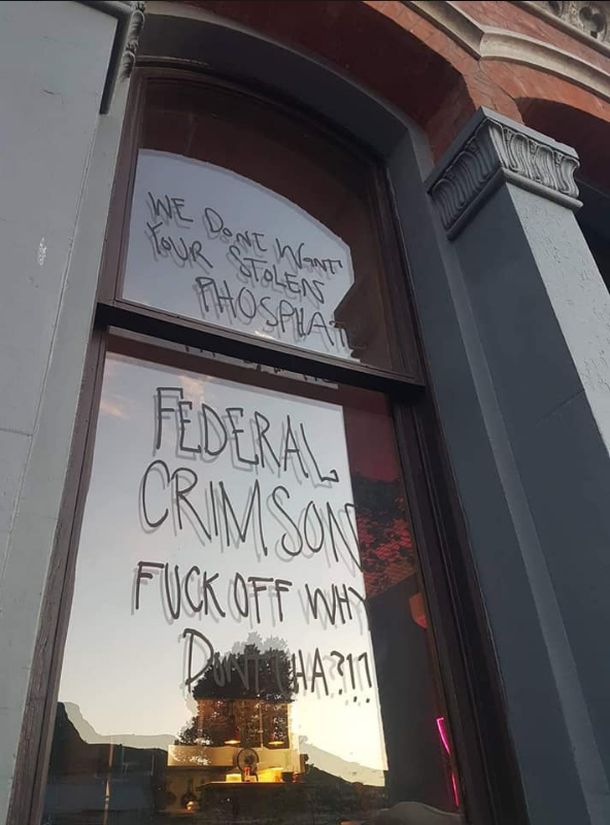
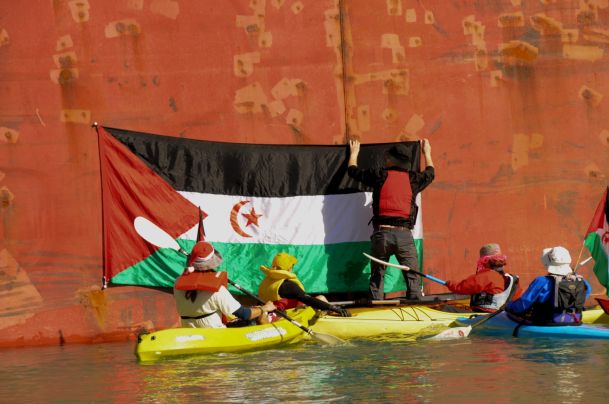
These are the clients of Morocco’s phosphate plunder
For the eleventh year in a row, Western Sahara Resource Watch publishes a detailed, annual overview of the companies involved in the purchase of conflict phosphates from occupied Western Sahara.
Protesters set up roadblock to stop conflict minerals in New Zealand
The pressure is mounting on the New Zealand importers of phosphate rock from occupied Western Sahara. Today protesters in Christchurch erected roadblocks to stop trucks from transporting the conflict minerals into the local Ravensdown fertiliser factory.
Kiwi importers ignore government advice on Western Sahara
While other companies internationally have managed to find alternative sources of phosphate - and in spite of a request of the New Zealand government that they do the same - the Kiwi fertilizer industry seems unwilling to drop its imports from occupied Western Sahara.
Kiwi port workers threaten not to discharge Western Sahara cargo
This morning, the New Zealand Rail and Maritime Transport Union issued a statement saying that they will "consider our options around refusing to berth the ship" if phosphate importer Ravensdown does not allow port workers to register their protest with the captain of the ship.

